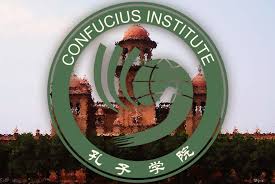Sargodha: In the presence of Prime Minister Imran Khan and Chinese Premier Li Keqian, several Memorandums of Understanding (MoUs) were signed in Beijing. Among them was the MoU to establish the Confucius Institute at Sargodha University (SU). It was signed by Ambassador Naghmana Hashmi, on behalf of the Vice Chancellor, and deputy Director General of HANBAN, the Confucius Institute headquarters in Beijing.
This will the fifth Confucius Institute in the country, in addition to the four institutes already functional at National University of Modern Languages, University of the Punjab, University of Karachi and University of Agriculture, Faisalabad.
In July this year, SU had signed an MoU with Henan Normal University (HNU), under which it was decided to establish the Confucius Institute at SU for the study of Chinese language and culture. The two universities then approached HANBAN, which gave its consent and, subsequently, the Foreign Office and the Chinese Embassy in Islamabad completed the required paper work for concluding the MoU ahead of Prime Minister Imran Khan’s crucial visit to China.
Under the provisions of the MoU with HNU, SU will provide the premises for CI that include space for a library, activity room and classrooms, besides logistical support to the teachers including facilitation of visas and the HANBAN will reciprocate by paying the salaries of their teaching staff, costs of teaching materials and other allied costs.
As a prelude to the establishment and functioning of the Confucius Institute, two Chinese language teachers from HNU have already started the Chinese languages classes at SU.
In view of the progress in China-Pakistan Economic Corridor (CPEC), SU has made academic and research collaborations with Chinese institutions a top priority. With the CPEC entering its second phase, in which agricultural cooperation is particularly emphasized, the University has entered a number of exchange agreements with Chinese counterparts, including with Lanzhou University in dryland agriculture and with South China Agricultural University in precisions agriculture and citrus research.
For the ease of communication and having good understanding of the Chinese culture and practices, learning Chinese language plays a crucial role. Hence, SU aims to build a pool of human resource which is well trained, qualified and acquainted with Chinese language to serve the local community and add value to economic development of the country.
For the purpose, last year, the Pakistan Institute of China Studies (PICS) was established, as part of the Rs.1.5 billion HEC-funded development project, which is overseeing and steering the university’s collaborative ventures with Chinese institutions. The establishment of Confucius Institute will expedite this mutually beneficial process, especially for the educated youth of this largely agrarian region.

